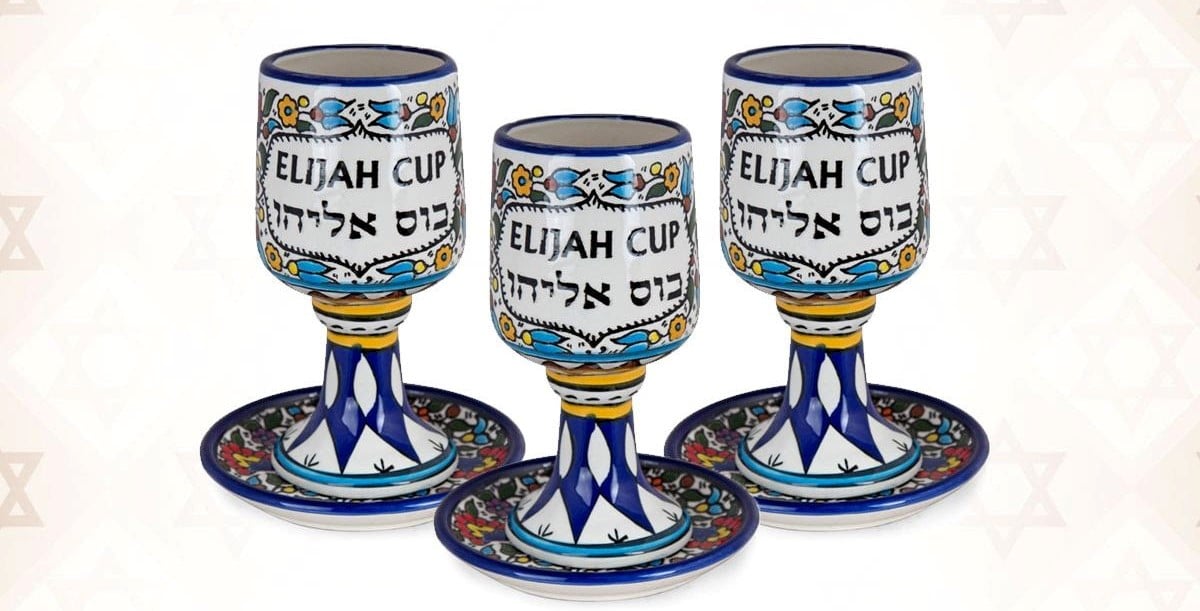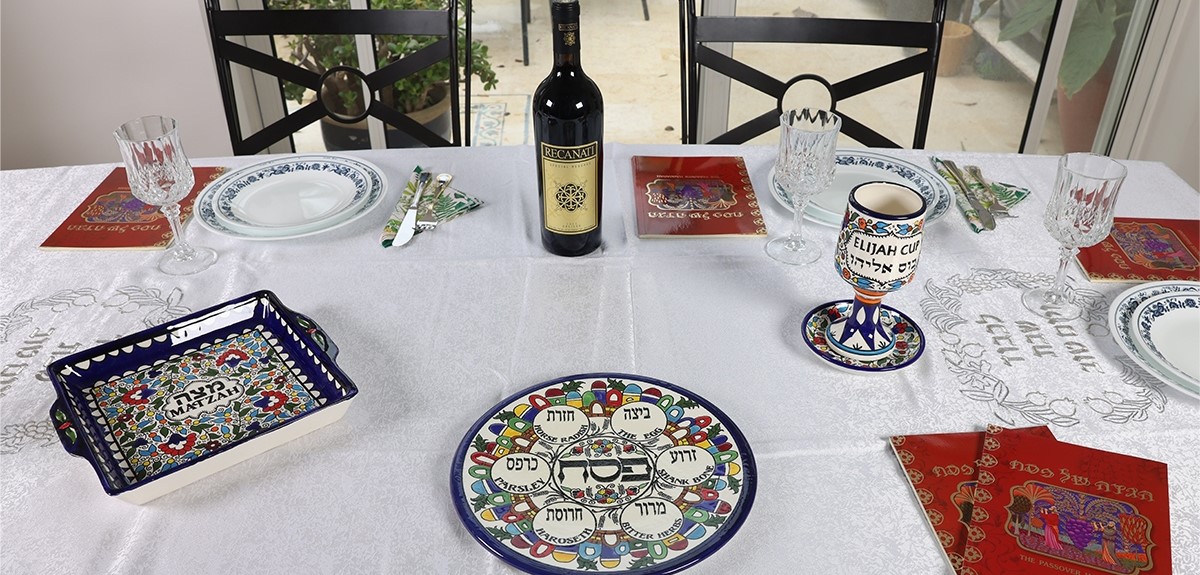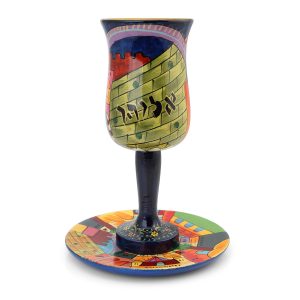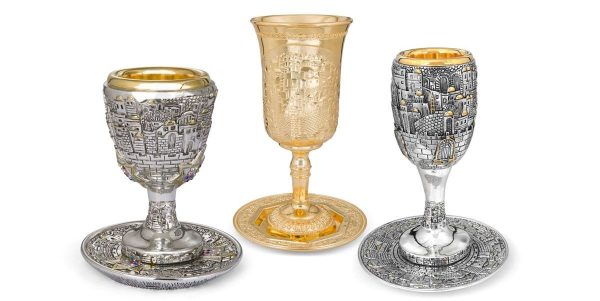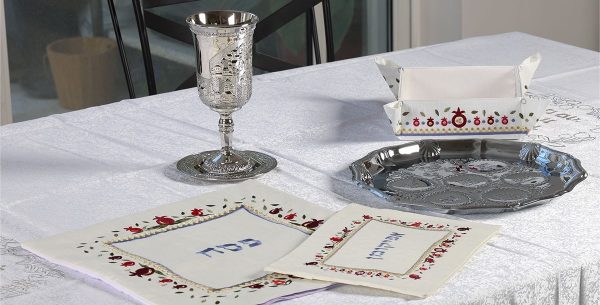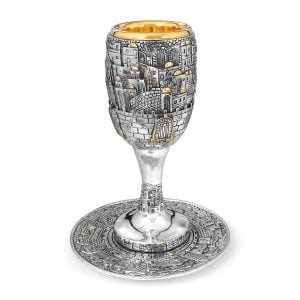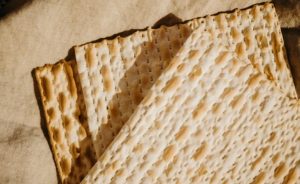
One of the most mystical yet mysterious parts of the Passover Seder is Elijah’s cup. Read on to learn more about what this special cup symbolizes and where the name comes from!
The Meaning of Elijah's Cup
“Elijah’s cup”, or cos Eliyahu in Hebrew, refers to the 5th cup of wine poured during the Passover Seder, the ceremonial dinner at the beginning of Passover.
It’s meant to honor the prophet Elijah, and unlike the other cups of wine during the Seder, it is left untouched and we are not meant to drink from it.
Jewish tradition tells us that the prophet Elijah (or Eliyahu in Hebrew) will return one day in the form of an unknown guest, and will announce the coming of the Messiah. It is also believed that he will resolve any and all controversial questions and disagreements regarding Jewish law. Upon pouring Elijah’s cup during the Passover Seder, the front door is briefly opened as a symbolic welcoming of the prophet.
Elijah’s cup therefore symbolizes the future coming of the Messiah and the fulfillment of Jewish prophecies. It’s a powerful way of tying together our past with our future – the historical redemption of the Jewish people via the exodus from Egypt, together with our future redemption in the Messianic age.
All of this is to say that Elijah’s cup is a beautiful symbol of hope and promise for the future – for us, our families, and for the Jewish people. This message is otherwise only heard at a brit milah, where Elijah’s chair (kisei shel Eliyahu) is left out too.
There is a second meaning behind the tradition of Elijah’s cup: The rabbis of the Talmud couldn’t agree when codifying the Passover Seder as to whether there should be four cups of wine or five; therefore, as a compromise and because all Jewish debates will be resolved when Elijah comes, there was a fifth cup designated with Elijah’s name that is to be filled but not partaken of.
Elijah’s cup is there to signify compromise and unity in the Jewish tradition – a beautiful message that we can all connect to!
There is a common and longstanding Jewish tradition to have a separate, special cup designated as Elijah’s cup at the Passover Seder – and you can fulfill this custom with a beautiful Elijah’s cup right from our store, along with all the other Passover Judaica and gifts you’ll need.
Can’t decide on the best ceremonial cups for your Seder? Check out our Top 10 Elijah’s Cups and Kiddush Cups for Passover guide!
Beautify your Passover Seder and express your hope for the future with a stylish and artistic Elijah’s cup, lovingly crafted in the Land of Israel.
